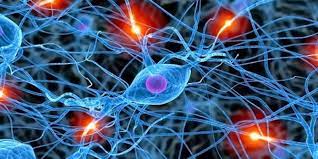This neurochemistry course opened my eyes to various perspectives and topics that I would not have sought out otherwise. I am grateful for the opportunities we were given to strengthen our skills as up-and-coming scientists.
Instill a love for learning
There were many aspects in which this course promoted my love for learning. To begin, the group discussions made the topics much more interesting and enjoyable. It was nice to communicate knowledge effectively with fellow peers who had similar academic backgrounds. There were many opinions and perspectives that made the discussion a learning experience that we would not have had in class or gathered through research. Also, I really enjoyed the topics that the class got to choose to research for each article. It was much more fun to search the literature on topics that we were interested in rather than topics were assigned.
Develop foundational skills and transferable intellectual capacities
Neurochemistry helped with this more than I could believe! The in-depth understanding of various articles that was required for this class really improved my comfortability as a researcher. It forced us to think critically and ensure full understanding of each topic, as well as choose specific subjects within that topic to research even further. This class also helped with collaboration and communication of knowledge. These characteristics were used within the PEAK project, as well as in group discussions, and the end-of-year presentation. This course truly helped with discussion and communication of knowledge to fellow scientists.
Develop an understanding of disciplinary, interdisciplinary, and intercultural perspectives and their connections
There were many connections between disciplines found in this course. While there were obvious ties between neuroscience, chemistry, biology, and even psychology, many of these topics had implications towards disciplines such as socioeconomics and education. Pertaining to topics such as mental illness and addiction, there needs to be further education on these issues at a young age and beyond. Within socioeconomics, topics such as obesity are heavily influenced by SES and the availability of nutritional foods. The subject of neurochemistry has far-reaching influences on multiple disciplines.
Cultivate an examined cultural, ethical, physical, and spiritual self-understanding
Neurochemistry cultivated quite a lot of self-understanding, mostly on a physical and spiritual level. I was not only curious about signaling and neuronal connections within my own brain, but also how disruptions in these pathways can negatively impact one’s life in so many ways (and my own life I suppose). I was never truly aware of the many signaling pathways in the brain, as well as the various relationships between each of them. Also, it has always been interesting to me to gain more information about myself on a metacognitive level. Issues such as the mind-body problem that I had discussed in my psychology course, The Human Mind, have often brought about issues of whether or not the mind is simply a manifestation of the brain, or if they are separate entities. This question is still not answered for me, and I’m not sure it ever will be. Although there is likely a biological or chemical answer for complex cognitive abilities such as reasoning, logic, emotion, learning, and memory, it is difficult for me to believe that there is nothing more than the physical brain or body. Although, this course did make me lean about more towards physicalist monism (the mind supervenes on the brain).
Encourage responsible participation in the world
I experienced this most through participation in the PEAK project. My group focused on Alzheimer’s, specifically on support towards caregivers for people with dementia. Although I had learned about Alzheimer’s on a biological and chemical level, I had never truly immersed myself in the personal and real-life struggles of those caring for people living with dementia. This gave us the tremendous opportunity to facilitate discussion in a caregiver support group and gain insight as to how the disease affected them and their loved ones. Also, this project gave me the opportunity to use knowledge I had learned in class and attempt to relate it to the discussion at hand. Although there were quite a few questions I was still unable to answer during the support group, we had members of the Alzheimer’s Association, as well as doctor of geriatrics, to guide and teach us through the sessions. Through this, we were able to responsibly participate in the real world.
